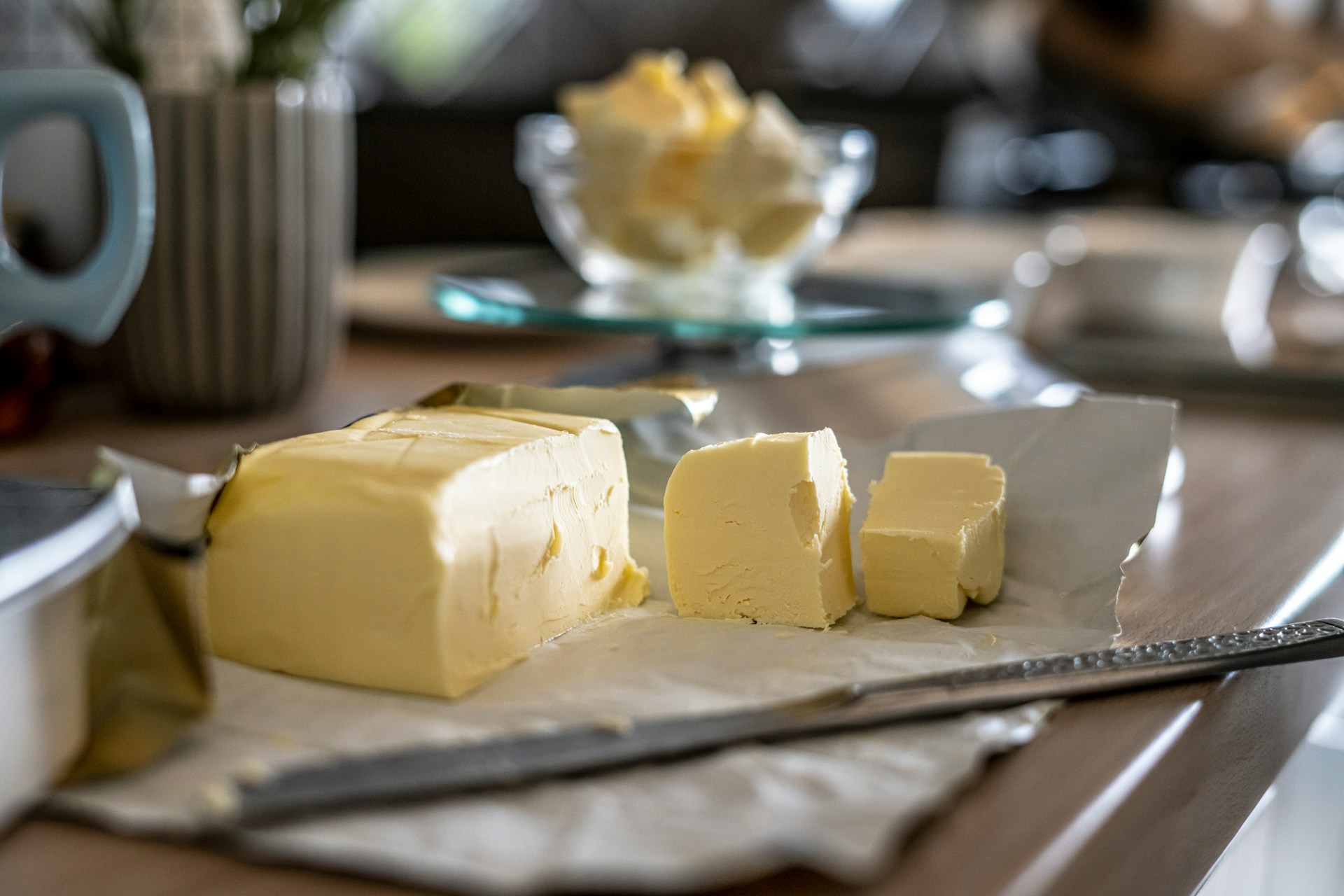
Key Points:
- Adjust salt levels to perfect dishes according to personal taste and recipe requirements.
- From savory sautés to delicate pastries, salted butter enriches a wide array of culinary creations.
- Experimenting with herb-infused butters and creative flavors transforms recipes. Mastering salted butter elevates dining and fuels culinary innovation.
Introduction
Few ingredients have as much control over flavor in the world of culinary arts as salt. It is an essential ingredient in baking and cooking because to its capacity to balance and improve flavors. The difference between salted and unsalted butter has a big effect on how your food turns out.
Understanding Salt in Cooking
Salt works as a preservative in butter along with improving its flavor. Although unsalted butter provides more accurate flavor control, salted butter is more convenient. Beginning with unsalted butter makes it possible to test out salt and ensure that meals are appropriately balanced. While coarse salts like kosher or sea salt lend texture and unique flavors, fine table salt dissolves evenly, making it perfect for everyday use. When cooks use unsalted butter, they can adjust the amount of salt to suit individual tastes and recipe requirements, which improves the overall flavor profile of both savory and sweet meals.
How Much Salt to Add to Unsalted Butter
Baking and cooking can be done with customized flavors by adding salt to unsalted butter. Generally speaking, you want to add around 1/4 teaspoon of salt for every 1/2 cup (one stick) of unsalted butter. This quantity creates an enjoyable mixture, bringing out the natural flavors of the butter without overdoing them.
Taste-testing is essential; start with less salt and increase or decrease according to recipe specifications and personal preference. You should think about the overall flavor character you want to produce because different foods may require different amounts of saltiness.
If you’d rather be more exact, measure the salt by weight instead of volume to get accurate outcomes. While coarser salts, such as sea salt or kosher salt, can give a delicate crunch and burst of flavor, fine table salt dissolves readily and spreads evenly throughout the butter.
The secret to perfecting the technique of salting unsalted butter is to experiment. Being able to regulate the amount of salt in food allows cooks to create dishes that are precisely seasoned and customized to each diner’s preferences, whether they are creating rich compound butters or lightly seasoning baked products.
Recipes and Uses
There are endless cooking possibilities when using salted butter, from improving savory recipes to giving sweet desserts more depth. Here are a few useful recipes and innovative uses for salted butter:
- Basic Salted Butter:
To begin, take one stick (1/2 cup) of room-temperature unsalted butter. Add the 1/4 to 1/2 teaspoon of salt gradually, stirring until fully incorporated. Taste and adjust salt amounts to suit your needs. This flexible salted butter can be used to add richness and flavor to sauces and gravies, melted over vegetables, or spread on bread.
- Herb Butter:
Use salted butter infused with herbs to improve your food. Finely chop fresh herbs like rosemary, thyme, or parsley and blend them with softened salted butter. Taste and adjust salt accordingly. Roll out on parchment paper to form a log or pour into molds. Cut into slices and serve as a tasty garnish for steaming veggies, fish, or grilled meats. Herb butter can be melted over heated popcorn for a flavorful snack or added to pasta dishes to give them a gourmet touch.
- Baking Applications:
The flavor and texture of baked items are improved by the use of salted butter. When using unsalted butter in a dish, you can adjust the sweetness level and improve the flavor profile by adding salt. To get an improved taste profile in cookies, cakes, and pie crusts, use salted butter. It works especially well in buttery pastries and shortbread biscuits, where the slight taste of salt balances the sweetness.
- Sauteing and Cooking:
Saute meats, veggies, or shellfish in salted butter. As food cooks, the salt helps to evenly season it, bringing out the natural tastes. It’s perfect for rapid stir-fries since the butter lends a rich, caramelized flavor and depth. Salted butter also makes a tasty and easy side dish when it’s drizzled over steamed veggies or used to complete pasta preparations.
- Compound Butters:
Use your imagination and combine salted butter with spices, honey, garlic, or lemon zest. These compound butters make a tasty side dish for grilled meats, toast, or baked potatoes. Simply form them into logs, chill them, and then slice them. Also, they make show-stopping toppings for waffles or pancakes, melting into a delectable sauce when they reheat.
Tips and Tricks
- Even Distribution: Ensure salt is evenly mixed into the butter to avoid pockets of saltiness.
- Taste as You Go: Add salt gradually and taste as you mix to achieve the perfect balance of flavors.
- Experiment with Flavors: Incorporate herbs, spices, or citrus zest into salted butter for custom flavors.
- Storage: Store salted butter in an airtight container in the refrigerator to maintain freshness and prevent absorption of other odors.
- Butter Consistency: Soften butter to room temperature before adding salt for easier mixing and uniform texture.
Conclusion
Adding salt to unsalted butter gives you exact control over flavors. It expands your cooking versatility. Using unsalted butter promotes adaptability and creativity in the kitchen. You can use it to enhance savory recipes with herb-infused butter. Or, to elevate baked goods with a hint of salt. Taste-testing recipes lets you customize meals to meet specific needs and tastes. You can do this while keeping a pleasing flavor. Take the chance to try different salts and ingredients. Find pairings that will lift your baking and cooking to new levels of flavor and joy.

Speak Your Mind